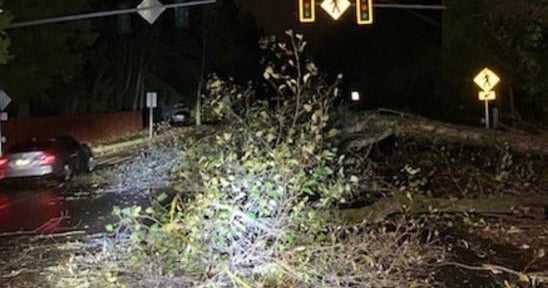How to stay cool and safe during a heat wave, according to experts
A series of major heat waves have been hitting countries around the world, including the U.S, Italy, Greece and the United Kingdom. In the U.S, the National Weather Service has issued heat advisories and excessive heat warnings in Washington, Oregon and parts of Idaho as well as much of the Northeast Seaboard. The temperature in Billings, Montana, was forecast to hit the triple digits Wednesday, and it will also be sweltering across the East, Southwest and Plains states.
As Americans battle the heat, CBS News spoke to three experts who offered some do's and don'ts for keeping cool during high temperatures, and how to keep yourself and your loved ones safe without breaking the bank.
Do: Take shelter
Don't: Stay outside long
The best and easiest way to stay cool is to seek shelter away from heat, preferably in an air-conditioned home or space.
According to the Centers for Disease Control, more than 700 people die every year from heat-related injuries, which they classify as preventable.
Prolonged exposure to heat or extreme temperatures affects the body's ability to regulate heat, according to Dr. Eric Goldberg, medical director of NYU Langone Internal Medicine Associates. This can eventually make sweating, the body's primary cooling mechanism, ineffective.
Do: Make use of fans
Don't: Overload your HVAC
For households that want to consume less or conserve more energy during hot days, box fans or ceiling fans can provide added relief at a cheaper price than running air conditions. Chris Janiak, a home care expert at Hippo, a homeowners insurance company said that running ceiling fans counterclockwise pushes air down to the floor and can create a cooler breeze.
Air conditioning units can provide much-needed relief for those sheltering inside during a heat wave. But using your air conditioner correctly could make or break your time in the heat, Janiak said.
Janiak said HVAC systems are designed to keep a set temperature in the house and turn off once that temperature is reached. If you continue to crank up your AC in an effort to cool your house down faster, you could end up overloading your system or dealing with a high electricity bill next month.
"If the main function of an air conditioner is to maintain the temperature in the house, drastically lowering the temperature can cause your system to work harder while increasing costs to run it," Janiak said. "Keep your thermostat to a commonly maintained temperature throughout the day that varies no more than 10 to 15 degrees, even while you're away. "
Do: Wear light, thin clothing
Don't: Take off more clothes
If you have to work outside or in direct exposure to the heat, think about what you're wearing. It might seem counterintuitive, but taking off more clothes when you're facing the sun won't make you any cooler.
Taking off more clothes just makes you more exposed to direct heat and sunlight, Goldberg said, giving you a higher chance of overheating. Instead, wear light and thin clothes while working outside. These prevent direct exposure of skin to sun and can also help absorb some of your sweat away from your skin, making you cooler while you work.
Do: Shut blinds and curtains
Don't: Close interior doors
Closing blinds and curtains can prevent excess heat from entering your home through the windows. According to the Department of Energy, this kind of smart management of window coverings can reduce the heat gain in your house by up to 77%.
"Drawing the blinds will prevent your home from feeling like a greenhouse, where sunlight and heat enter without a clean path for ventilation," Janiak said. "If you want to block as much sunlight as possible, try buying blackout or light-colored curtains with plastic backings. If you have pets, shutting the blinds can also help keep them cooler while you're away from the house."
Janiak recommends keeping the doors that lead outside closed as much as possible, but opening interior doors around the house to allow air to flow through. Closing doors to rooms with a lot of windows can also help keep heat down.
Do: Stay hydrated
Don't: Drink excess alcohol
One of the most important ways to keep yourself safe during high temperatures is to monitor your water intake and stay as hydrated as possible.
Dr. Judah Sueker, the medical director of emergency medicine at Mount Sinai Hospital, said hydration is everything.
"As it gets hotter, bodies have to work harder and harder to release heat and one of our body's most effective ways of doing that is through sweating," said Sueker. "So we tend to lose a lot more water when it's hot. And if we don't stay hydrated, we can become dehydrated. Extreme dehydration can then lead to our organs, particularly our kidneys, starting to shut down."
Drinking water or electrolyte-heavy fluids can replenish your tank, but despite the lure of a cold beer on a hot day, Sueker recommends staying away from alcoholic beverages.
"Excessive alcohol consumption can make people more vulnerable to heat exhaustion and dehydration," he said. "Both because alcohol acts as a diuretic as it causes us to produce more urine and lose more fluids that way. And because it can also affect some of the other ways that our body cools itself."
Do: Monitor vulnerable family members and friends
Don't: Ignore symptoms
According to Goldberg, some of the groups most vulnerable to heat illnesses include the very young, the elderly, those with asthma and those on medications that impact fluid loss and blood pressure.
These groups have less built-up reserves, which makes them more susceptible to high temperatures that others could withstand. If someone you know or love is in one of these groups, it is important to monitor their symptoms and heat exposure.
Symptoms of illness can include nausea, exhaustion, lightheadedness or headaches. For older individuals, more severe symptoms can include vomiting, an inability to balance, dizziness, forgetfulness or confusion.
Paying close attention to see if any of these symptoms occur can be imperative in knowing when to seek medical attention.
"The general rule is, if people start to feel better quickly based on the changes in their environment, then great," Sueker said. "You probably don't need to worry too much. Whereas, you know more significant heat exhaustion has set in if symptoms are really persisting despite getting into a cooler environment. That would be one reason to seek care."




